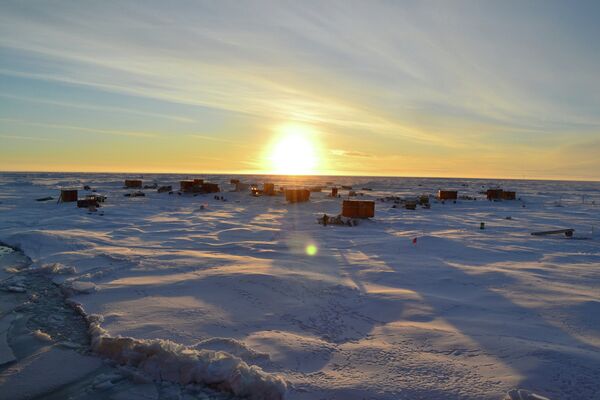MURMANSK, June 10 (RIA Novosti) – A Russian nuclear icebreaker has reached a drifting polar research station and is preparing to evacuate its stranded scientists, a spokesman for the ship's operator Atomflot said on Monday.
“The trip to the ice floe took seven and a half days,” the spokesman said, adding the icebreaker Yamal forced its way through the ice at speeds up to 8 knots (15 km/h). The researchers and equipment from the North Pole 40 (SP-40) station are to be evacuated to the Russian Arctic city of Murmansk.
Some members of the evacuated mission will be landed at Baranov Cape on Bolshevik Island, off the north coast of Russia, to allow the researchers continue their work safely.
Russian Natural Resources Minister Sergei Donskoi ordered in late May preparation of an urgent evacuation plan for the SP-40 station, due to the break-up of the ice floe it is located on. The Yamal was dispatched from Murmansk on its rescue mission on June 1.
The break-up of the ice floe poses a threat not only to the station itself and the 16 scientists working there, but could also cause environmental pollution in the area near Canada where it is drifting, the Natural Resources Ministry said previously.
Finding a suitable ice floe for the stations is becoming harder every year due to global climate change. The coverage of ice in the Arctic in summer 2012 had declined by nearly 50 percent since the start of satellite tracking in the late 1970s, according to BarentsObserver.com, a Norway-run news service.
This is not the first time that Russia, which opened its first Arctic station (SP-1) in 1937, has made an early evacuation in the Arctic. In late April 2012, the previous research station, SP-39, was moved to another ice floe because its original one was breaking up, and in May 2010, the Rossiya nuclear-powered icebreaker evacuated floating station SP-37.
Updated with new headline.




